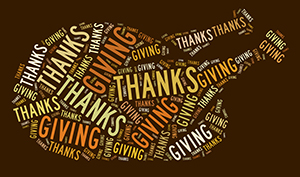
Family, food and fun are not the only things that come with the Thanksgiving holiday. It also brings with it certain health hazards, including food poisoning, fire, and choking.
According to the U.S. Fire Administration, the average number of cooking fires doubles during the holiday.
Ensure your smoke detectors work and check the batteries.
Stay in the kitchen when using the stove top.
Keep children away from the stove. They should be at least three feet away.
Use a timer and do kitchen checks when simmering, baking, broiling and roasting.
Avoid loose clothes, especially those with long sleeves, while cooking.
If a turkey is thawed at a temperature above 40 degrees Fahrenheit, salmonella or other bacteria that cause food poisoning can grow.
Safely cooking a turkey starts with correct defrosting. There are three methods for safe defrosting.
The turkey can be thawed in the refrigerator — one day for every 5 pounds of the bird. The turkey can be submerged in water if it is in leak-proof packaging — 30 minutes for every pound.
The water should be changed every half hour. It’s also safe to defrost a turkey in a microwave. Remove any packaging and follow the manufacturer’s instructions.
Cook the turkey immediately after thawing. Don’t slow cook or partially cook the turkey, and check the temperature with a meat thermometer to determine if it’s done. It’s necessary to check the innermost part of the thigh and wing, and the thickest part of the breast.
The turkey and stuffing need to be at least 165 degrees Fahrenheit.
The most common cause of choking is talking while eating. Follow the link to view the Red Cross’s recommendations on what to do if you encounter someone who is choking http://www.redcross.org/flash/brr/English-html/conscious-choking.asp
Visit http://www.redcross.org for more Thanksgiving food and safety tips.








